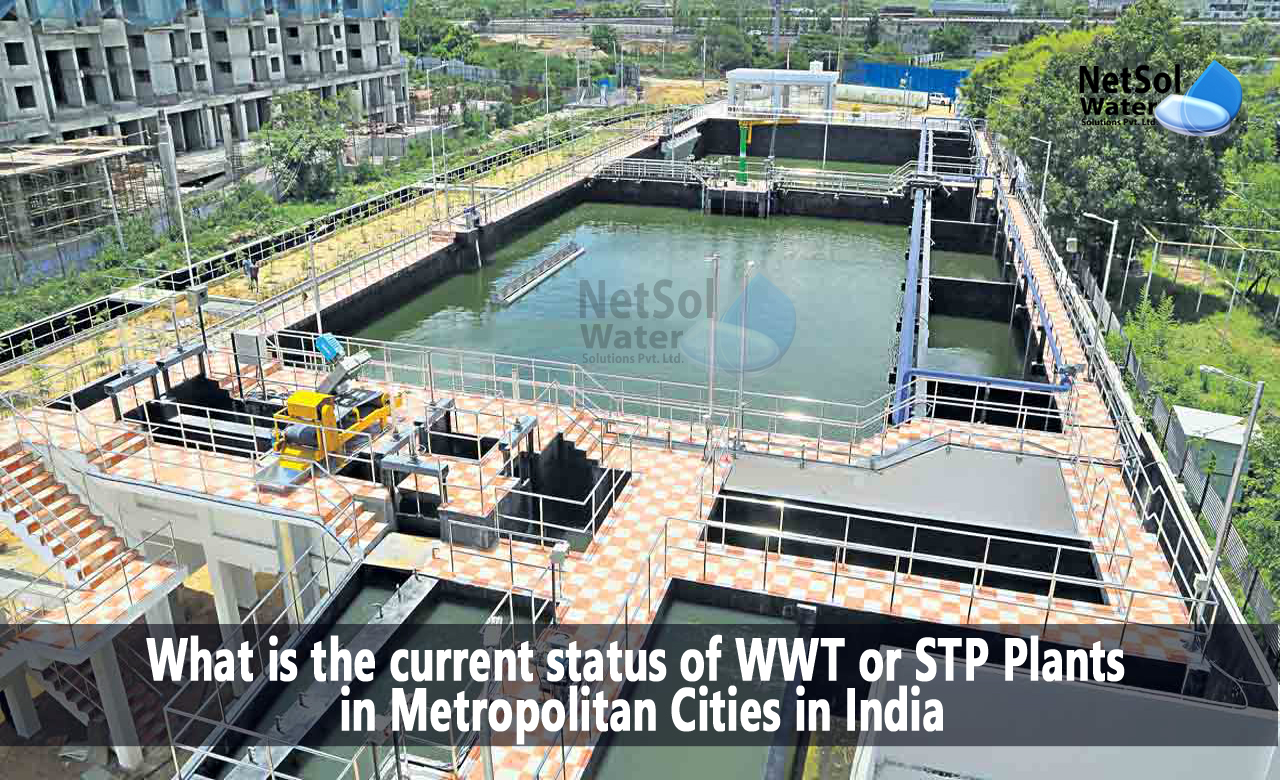What is the current status of WWT/STPs in Metropolitan Cities in India?
Indian metropolitan cities are characterised by fast-paced urbanisation, expanding populations, and heavy industry growth. Wastewater management in such an urban expansion is faced with a significant challenge. Let us discuss the present situation of wastewater treatment and sewage treatment plants (STPs) in some of the top metro cities of India, mentioning the achievements made and those that are required to be tackled further.
The Changing Demand for Wastewater Treatment.
The large cities such as Delhi, Mumbai, Kolkata, Chennai and Bangalore have a continuous inflow of population who are in search of more excellent economic opportunities. It further increases the wastewater generated. Improper management of wastewater can constitute a great threat towards the environment, health, and sustainability of urban development.
Current Initiatives and Progress
Several initiatives and measures have been taken in metropolitan cities to address the wastewater treatment challenge:
Sewage Treatment Plants (STPs): Metropolitan cities have put monies into the construction of STPs for treatment of domestic as well as industrial sewage. Such plants are important in dealing with the pollution of local water bodies.
Government Schemes: For instance, the Atal Mission for Rejuvenation and Urban Transformation (AMRUT) and the Swachh Bharat Mission have been introduced by the Indian government with a view of improving urban infrastructure sanitation, including wastewater treatment.
Technological Advancements: Wastewater treatment technologies such as membrane bioreactors have been implemented in many cities to improve the quality of the treated water.
Public Awareness: Public awareness about water use and wastewater management has increased through campaigns, understanding, and education.
Challenges Ahead
While progress has been made, several challenges remain:
Capacity Issues: Most cities’ STPs cannot cope with the growing quantum of waste water. Excessive load can create bottlenecks that impede treatment of the patient.
Ageing Infrastructure: Some STPs require upgrades and maintenance to match urban growth. This leads to equipment breakdowns and less effective treatment.
Industrial Effluents: However, controlling industrial pollution continues to be a problem. Disposal of industrial effluents should be done in the right manner to keep the water quality.
Groundwater Contamination: The pollution of groundwater, which serves as a major source of drinking water, can arise from improper wastewater treatment. Preventing this contamination is crucial.
Climate Resilience: City planners need to consider how changing climate will influence water resources, infrastructure as well as reliability of wastewater treatment systems.
The Way Forward
To address these challenges and ensure better wastewater treatment in metropolitan cities in India, the following actions are essential:
Investment and Expansion: It would mean increased investment in the expansion and up gradation of wastewater treatment facilities. This entails the construction of new STPs and the expansion of existing ones.
Industrial Compliance: Enforcement of strict environmental regulations will help lower industrial pollution. Ongoing monitoring and punishing violations are essential.
Efficient Operations: This paper addresses the need for improved operation and maintenance of the STPs so as to enhance their long – term efficiency and reliability.
Recycling and Reuse: It will also minimize pressure on natural water bodies by promoting water recovery and reuse that would have otherwise gone into the wastewater disposable.
Integrated Planning: This requires taking a comprehensive approach to wastewater management that includes urban planning and sustainable development to ensure long term sustainability.
Conclusion
In terms of wastewater treatment, the Metropolitan cities in India have evolved enormously but as the pace of urbanization and population growth continues to grow; it presents challenges still. Achieving comprehensive and sustainable wastewater management requires continual investment, policy enforcement, technological advancements, and increasing public awareness. Indian cities must partner with government authorities, environmental agencies, industries, and the public towards cleaner and healthier environment.



